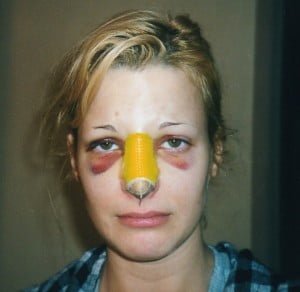Swelling and bruising are natural parts of recovery period. The bruise scale depends on many factors, including the method of surgery and the patient himself/herself. The factors which influence the scale of swelling and bruising are categorized as below:
External factors:
- Whether or not the nose is broken (osteotomy surgery)
- The scale of soft tissue cut or height from osseous-cartilaginous frame
- Using the closed or open techniques in nose surgery
Internal factors:
- The age
- The thickness of skin
- Bleeding disorders
- The medicines that attenuate the blood
Many of the factors stated above are out of patient’s control, although the scale of swelling and bruising could be minimized by following these tips:
- Avoid any blood attenuating medicine 2 weeks before the surgery and use such medicines after the surgery only with a physician’s prescription. The medicines which attenuate the blood include: Aspirin, Ibuprofen, anti-inflammatories, Heparin, Coumadin, Plavix and etc.
- Avoid using multi vitamins, galenics, tea and etc. which have a high level of vitamin E, Ginseng and Ginkgo. These medicines attenuate the blood and result in excessive bleeding.
- If you or even one of your family members have a history of bleeding or bruises, it is advised that you consult your doctor about it before the surgery.
- You can use ice packs on your face for the first 48 hours.
- Keep your head up. This will help in decreasing the swelling..
- Avoid smoking.
- Using herbal supplements like Bromelain (which is found in pineapple) and papaya extract is also helpful, but few researches have proved their usefulness.
- Exposure to sun light during the first months after the nose cosmetic surgery can exasperate the bruise and result in a mottled skin. It can also result in sunburn easily. For several months after the surgery, the patient has to use sun creams and caps to avoid the exposure.
Splint/ packing/ cast
Surgeons usually place an external splint on outer part of the nose after the surgery. The cast can be useful in improvement of surgery results and reduction of swelling. Most of surgeons place the cast on the nose for over a week.













